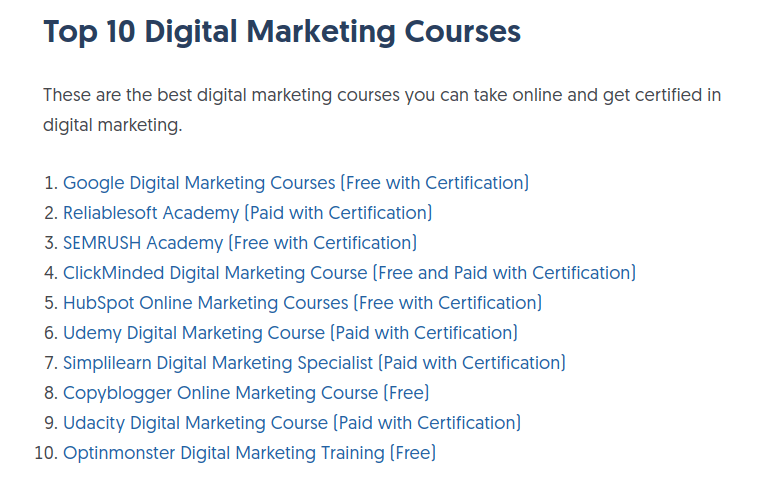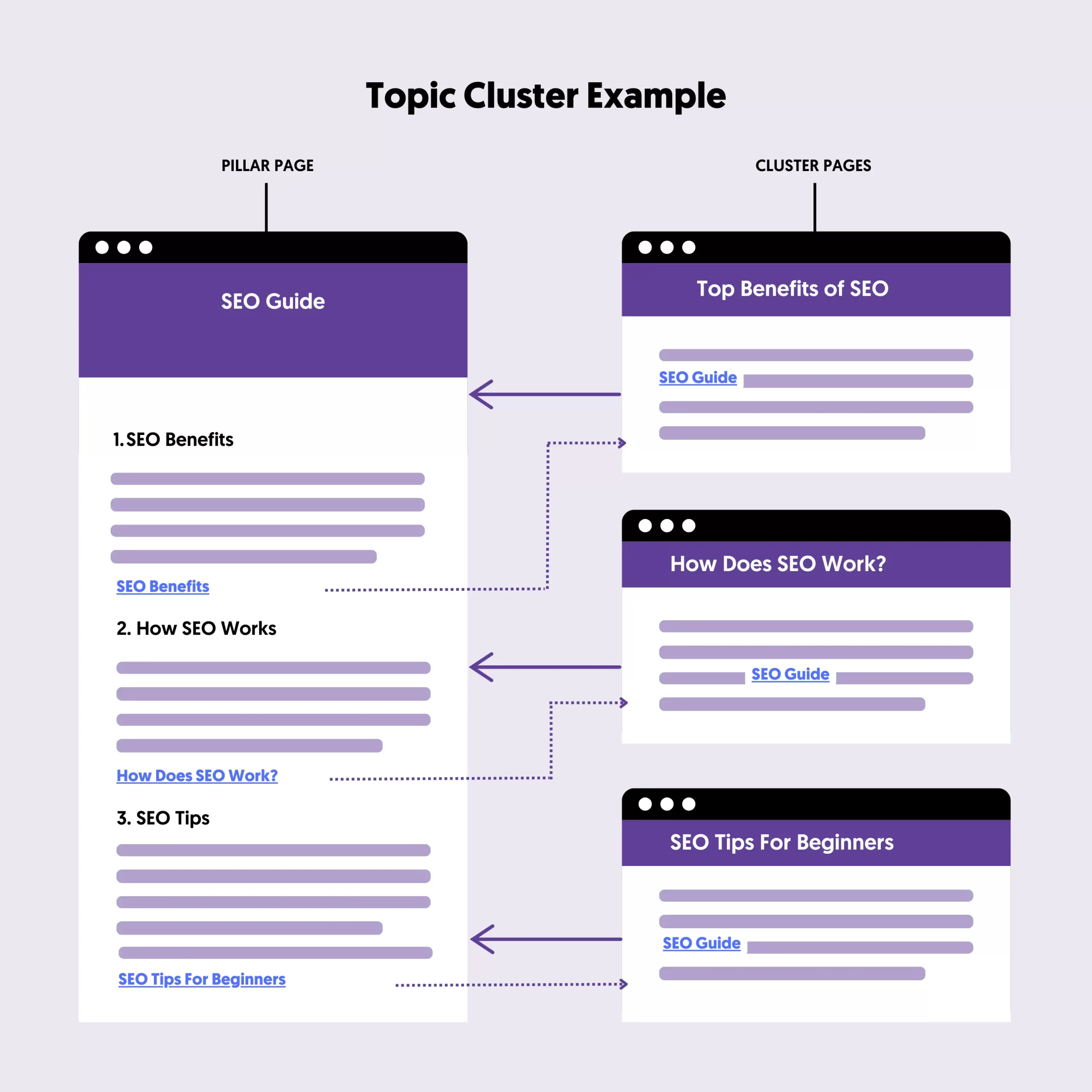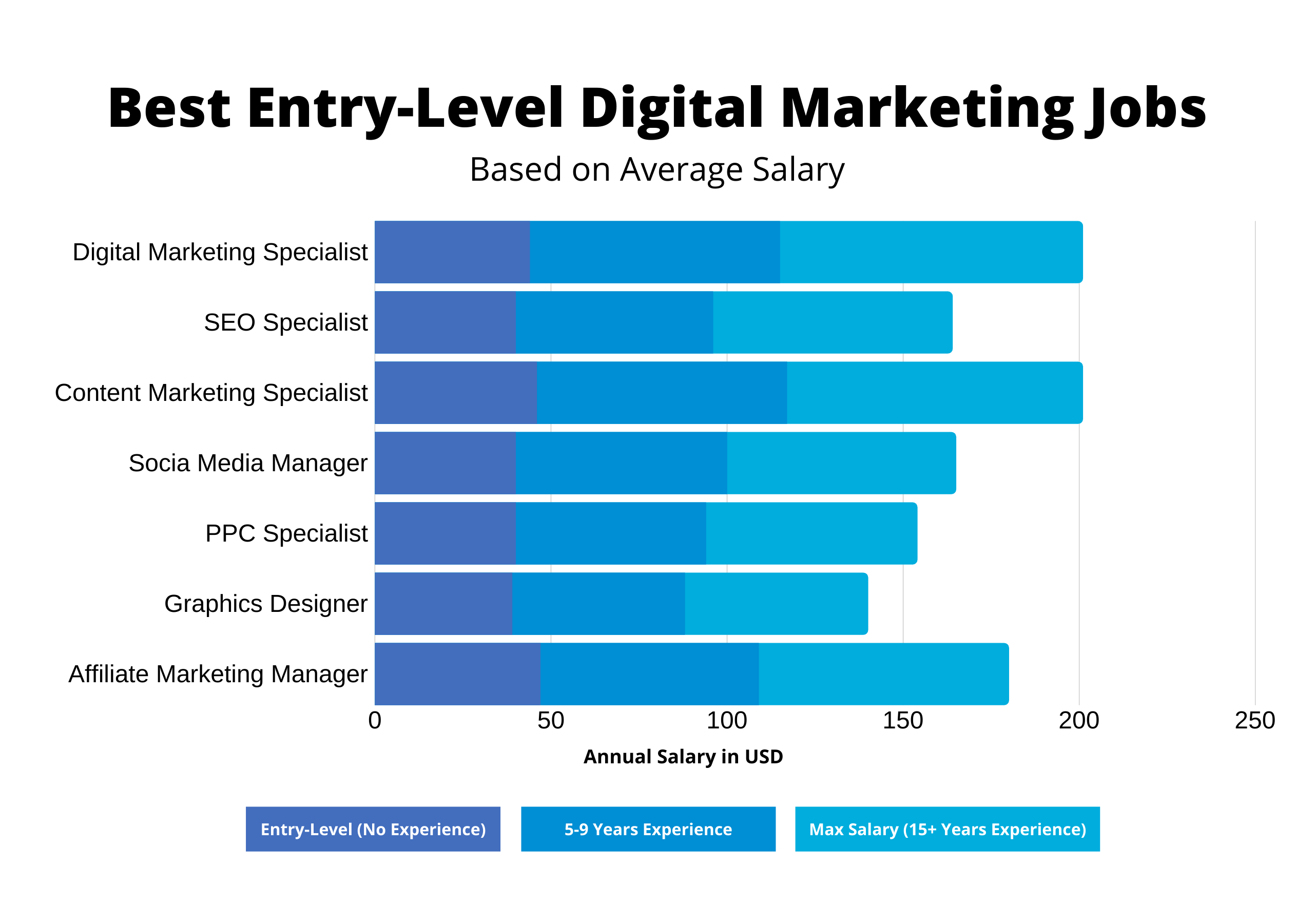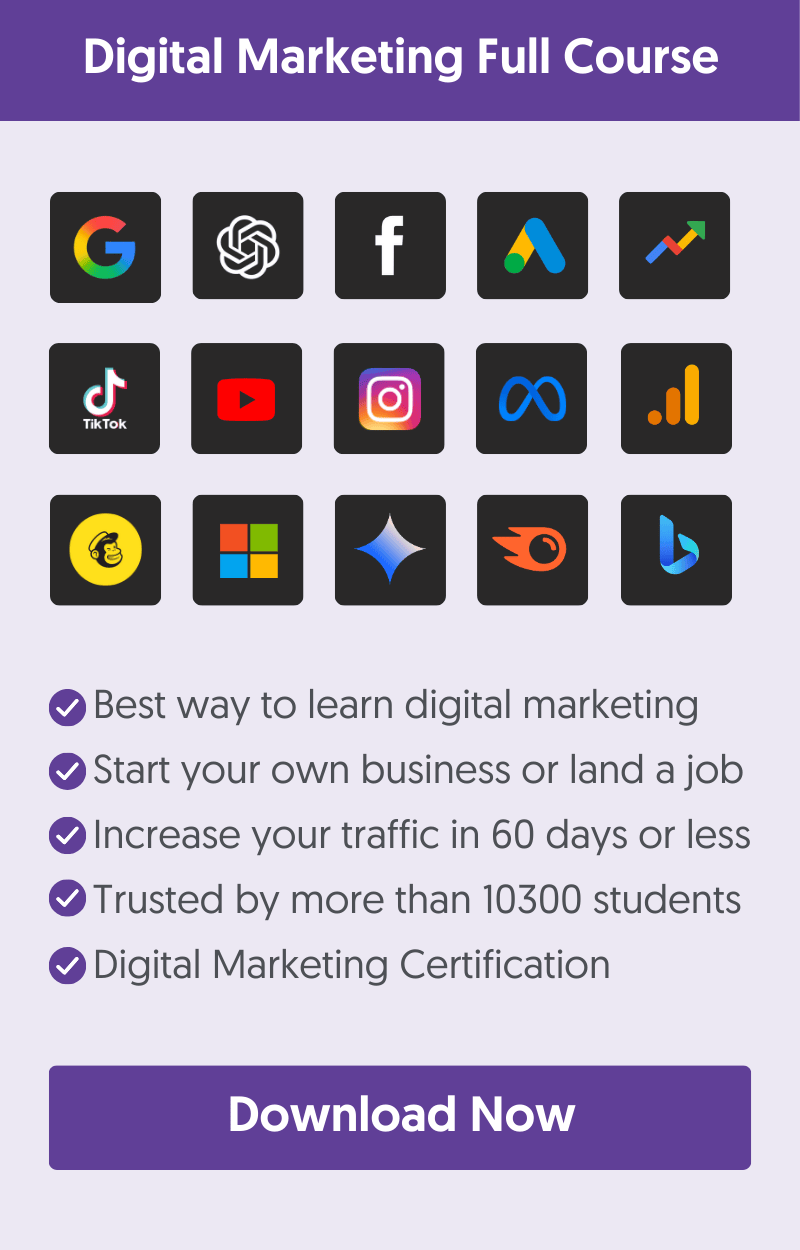If you enjoy writing, strategizing, or promoting digital content, then a career in content marketing may be right for you.
I have worked as a content marketing manager for over a decade and can tell you it is a great career choice with many benefits.
In this guide, I will explain how you can get into content marketing even if you do not have any experience. You’ll learn what skills you need to develop, how to best position yourself in jobs, and what to expect from the career path.
Is Content Marketing a Good Career?
A career in content marketing is an attractive prospect for several notable reasons.
It Is a Growing Industry
Content marketing continues to grow in popularity because it is effective. A report from HubSpot states that content marketing is 13 times more likely to result in positive ROI than other marketing strategies.
The report also shows that 70% of companies say that they’re actively investing in content marketing, and 60% say that content marketing is very important or extremely important to their overall marketing strategy.
You Earn Solid Pay
Content marketers of all experience levels earn a solid income. This is because content marketing can bring a lot of revenue to a company, and those responsible for its implementation and execution are paid in kind.
You Can Build a Diverse Skill Set
Content marketers require a wide range of skills to complete all their responsibilities successfully. This includes:
- Writing skills
- Research skills
- SEO skills
- Strategic skills
- Promotion and marketing skills
All these skills have plenty of use cases throughout other areas of digital marketing. This makes experienced content marketers a viable option for positions throughout the digital marketing landscape.
One of the best ways to get into content marketing and become a content marketer is to follow a good Content marketing course. A high-quality course will help you understand content marketing without spending endless hours searching for this information from random resources on Google.
Get Started
Content Marketing Career Path
The usual career path for a content marketer is as follows:
- Content Specialist (entry-level): creates content for different areas of the content marketing strategy
- Content Marketer: creates and edits content while running content marketing campaigns.
- Content Strategist: creates content marketing strategies. Often oversees a team of content specialists.
- Content Marketing Manager: Responsible for the content strategy as a whole and manages all the members of the content team.
- Content Marketing Director: Larger companies will have a content director responsible for all the business’s content marketing efforts.
How to Get Into Content Marketing
Follow these 10 steps to kickstart your content marketing career.
- Understand how content marketing works
- Build your writing skills
- Get a content marketing certification
- Start a content marketing blog
- Learn how to do keyword research
- Build your research skills
- Learn how to create popular content types
- Build your online reputation
- Get an entry-level content marketing job
- Apply for a content marketing manager position
1. Understand how content marketing works
The first step towards building your career in content marketing is to understand the ins and outs of how content marketing works.
In short, content marketing is the process of planning, creating, publishing, and promoting useful content to a targeted online audience.
It all starts with the content strategy. Creating a strategy for content helps clarify who your target audience is and what opportunities are available to provide additional value to this audience.
You can then create relevant and useful content for all your different digital marketing channels, including:
- SEO: Content that matches search intent and performs well in search engines
- Social media: Content that is engaging, leading to more likes, shares, and followers
- Email marketing: Convincing Content can turn the funnel prospects into sales.
Some of the objectives that companies will look to achieve with their content marketing are:
- Establish authority with the target audience
- Differentiate the brand from competitors
- Engage with potential customers
- Increase on-site conversions
- Rank higher for important search terms
- Improve brand awareness and reputation
2. Build your writing skills
After you understand how content marketing works, you’ll need to develop your writing skills.
As a content marketer, you’ll be doing a lot of writing, so you must be versed in writing in different styles and for different audiences.
Start by reading books on writing. This will teach you the basics of grammar, writing techniques, and writing styles.
Once you have the basics, practice writing regularly to build your skills. Look at the works of your favorite writers and analyze their writing for inspiration you can use for your own content.
As you begin to develop your writing skills, you’ll also need to learn copywriting. This is writing intended to sell or persuade the reader to take a certain action.
A great way to improve these skills is to take a copywriting course. With the right course, you can learn from an experienced copywriter and gain insights into the current best practices to ensure that your writing style is up to date.
3. Get a content marketing certification
Obtaining a content marketing certification (or a digital marketing certification) will help you further your career in content marketing.
By taking a good course, you’ll develop important skills needed in content marketing, including content writing, copywriting, content strategy, SEO, and content promotion.
An example of a great course is the Content Marketing Full Course by Reliablesoft.
It covers basic and advanced content marketing concepts, including:
- How to create an effective content marketing strategy
- How to find good content ideas for your campaigns
- How to create content optimized for links and social shares
- How to create pages that rank well on Google
- How to promote your content to reach a large audience
- Important tools and resources to use a content marketer
The course also comes with a content marketing checklist you can use to streamline your content planning and creation.
Along with the enhancement of skills, many courses will provide a certification upon completion of the course. This has additional benefits for your content marketing career.
With a certification, you can validate your knowledge and skills to employers. This can help you stand out from competitors, making it easier to land jobs or freelance clients.
4. Start a content marketing blog
A great way to hone the skills needed for your career in content marketing is to start your own content marketing blog.
Starting your own blog is also a great way to build your online presence. With a stronger online presence, you can showcase both your writing and marketing skills.
Begin by planning the overall strategy of the blog and researching the target audience you are trying to reach. By writing on topics related to content marketing, you’ll be able to drive relevant visitors to your site to grow your network of content marketing professionals.
Once you’ve generated some ideas for topics, you can create a content calendar. This will help you visualize your publishing schedule and will help ensure that you are publishing content consistently.
You can then start creating and publishing your content. Look to create a variety of content types, as this will help prepare you for some of the work you may be responsible for throughout your content marketing career.
5. Learn how to do keyword research
If you want to have the ability to create effective SEO campaigns, you’ll need to learn how to perform keyword research.
Keyword research gives valuable insights into the interests of your target market. With it, you can discover:
- What topics people are searching for
- The number of people searching a specific topic
- The types of content that perform best for those particular searches
Along with finding topics and keywords your audience is searching for, you must be able to understand the intent of the searcher. This will allow you to create the right type of content that matches what the searcher is looking for.
Consider the search term “content marketing”. Is the searcher looking for a definition of what content marketing is? Do they want to know how it works? Or do they want to learn how to pursue a career in content marketing?
The best type of content to create for this query will depend on what exactly the user is looking for. If they simply want to know what content marketing is, a simple article could meet their needs.
But if they want to know how content marketing works, a more in-depth how-to guide would be more appropriate.
A quick way to gauge the best type of content to match the searcher’s intent is to look at the content currently ranking well for the term.
If you see several long-form posts at the top of the rankings, it is a sign that Google deems this type of content most relevant to the searcher’s interests.
Short-tail vs long-tail keywords
It’s important to understand the difference between short-tail and long-tail keywords. Short-tail keywords, or head terms, are shorter and generally related to a broader subject.
Long-tail keywords are longer phrases and usually contain three or more words.
A mixture of both short and long-tail keywords is necessary for successful SEO campaigns. Long-tail searches are typically less competitive so you can rank for these keywords faster.
Head terms are more competitive but usually have a much higher search volume. Ranking for these keywords will take more time but will eventually bring a lot of traffic to your website.
There are plenty of powerful keyword research tools that make it easy to search for ideas based on the criteria you select. Some notable options include:
- Ahrefs
- SEMRush
- Mangools
- SERanking
6. Build your research skills
After you learn how to perform keyword research, you’ll want to develop your overall research skills.
Research is important to content creation as it enables you to find the information that you will use in your writing.
You’ll need to be able to distinguish between high-quality and low-quality sources. When you’re writing about a subject that you may not be an expert in, you have to trust that the sources you use are accurate.
Another important part of effective research is organization. When combing through data sources, you’ll collect a lot of information. You’ll need to keep this information organized so you do not lose valuable insights.
There are plenty of online tools that can help you do this efficiently.
A good example is Evernote. This note-taking app allows you to store all your notes in a single easy-to-manage space.
You can create tags and folders for different types and topics of information. There is also a Chrome extension you can use to clip an entire webpage to save within Evernote.
7. Learn how to create popular content types
As a content professional, you will need to know how to create a variety of different types of content. Some of the most important types of content you’ll need to create include:
Listicles
Listicles are a type of article that contains a list of items.
This form of content is effective because it is easy for readers to scan the content to quickly pick up the main points.
As a writer, you can use listicles to provide a lot of valuable content without overwhelming the reader.
Here are a few steps to writing a good listicle:
Find a topic that works as a listicle - Listicles can work well for every niche but they won’t necessarily work for every topic. Research the top-ranking content for the topic and see if you find other listicles. If there are other listicles ranking well, then you know that creating a better listicle is the best option for ranking for the topic.
Add proper formatting to the list items - Listicles require the proper use of headings. You should use H2 formatting for the title of the list. Each individual list item should have H3 formatting.

With the proper formatting, the list items in your post can appear at the top of Google results for queries like “best digital marketing courses”.

Use how-to schema markup - Schema markup helps Google understand your page’s content in more detail. This better positions your pages to earn the featured snippet box in Google.
Pillar Pages
Pillar pages are long-form content pages that cover a single topic in great detail. The goal of a pillar page is to provide readers everything they need to know about the topic.

They are usually used to target high-volume, short-tail keywords.
The pages are longer than normal blog posts and content is broken into different sections each with its own sub-topic.
Here are the basics of creating effective pillar pages:
Know what types of content work best for pillar pages - Pillar pages work well for topics that are broad but not too narrow. There need to be enough sub-topics to create long-form content. You should also stick to topics with high search volume as pillar pages take more time to create.
Choose the best formatting - There are two ways to format your pillar pages: as a single pillar page or through topic clusters. With a single pillar page, you simply have all content on one page, broken into different sections. Each section is marked as an H2 or H3.
With topic clusters, the main page has a list of all the sections and each section has its own webpage. All the sub-pages must have a breadcrumb menu so that users can easily navigate to the main page and the previous sections.
Enhance the page with visual elements - Visual elements make the page more engaging and easier to consume for the reader. Common forms of visual elements to add to pages include:
- Images
- Videos
- Audio/podcasts
- Charts
- Infographics
Infographics are particularly useful for pillar pages. This is because infographics are an effective tool for gaining high-quality links back to your site. With a pillar page, you have enough content to repurpose the post into an infographic that other site owners can add to their site as a valuable visual asset.
Build links to your page - Once you publish the pillar page you need to get plenty of links to the page. This includes both internal and external links. Start by linking to the pillar page from your homepage, blog page, header, footer, and sidebar (if applicable).
For external links, you’ll need to actively promote your page to other site owners. Pillar pages work well as part of a “skyscraper” campaign. This is where you create longer more valuable content than the current top-ranking pages for a topic. You then reach out to the sites linking to those pages asking them to link to you instead.
You can bring more attention to the page by sharing it on social media, sending it to your email list, or creating a press release.
8. Build your online reputation
Establishing a strong online reputation will make it easier for you to gain high-quality content marketing positions throughout your career.
Starting your own digital marketing blog is the first step in building your online reputation. As you begin to bring more traffic to your website, others will begin to recognize your skills.
Here are some ways you can further enhance your online reputation:
Use an attractive web design - Beyond reading your content, visitors will assess the quality of your website. By having an attractive web design you send a message of professionalism to anyone who interacts with your website.
Be active on social media - Social media is a great place to build connections with other content professionals. By networking with others in the industry, you will build your reputation as an established and successful content marketer.
Share your achievements - You can let others see the results you have driven or any certifications you have earned by sharing them on your LinkedIn profile. This will further validate your competence as a content professional and will improve your online reputation.
Resources to Learn More
9. Get an entry-level content marketing job
Before you can advance to higher-level content marketing positions, you’ll first need to get your foot in the door.
The typical entry-level position for a content marketing professional is a content marketing specialist.

This role is typically responsible for writing, editing, and developing the content that is used throughout the company's digital campaigns.
You can read our breakdown of the content marketing specialist position to learn more about the role.
There are plenty of online job boards you can use to find open content marketing specialist positions:
- Indeed
- Ziprecruiter
- AngelList
- Glassdoor
- Upwork
When you land your first entry-level content marketing job offer be careful not to jump on it right away without considering if it is up to par.
Often times the initial offer is not the best offer and you can end up getting an offer more aligned with your true value with some simple negotiating or exploring multiple options.
Use a tool like LinkedIn Salary to see what other entry-level content marketers in your area are making.
10. Apply for a content marketing manager position
Once you’ve built some working experience you can apply for the higher-paid jobs in content marketing.
The usual progression is to move from a content specialist to a content marker or strategist before becoming a content marketing manager.
As a content marketing manager, you are responsible for planning and implementing the company’s overall content strategy.
Some of the daily duties and tasks include:
- Managing the content team including writers, strategists, and graphic designers
- Overseeing the content preparation and editorial calendar
- Managing content distribution across various marketing channels
- Measuring the effectiveness of campaigns and making adjustments as needed
The role requires all the writing, research, and SEO skills as the entry-level position as well as time management, organization, and communication skills.
You can find open content marketing manager positions on the same job sites as the other content marketing positions.
How Much Do Content Marketers Make?
How much you can make as a content marketer will depend on your position, level of experience, and geographic location.

According to Payscale, the average annual salary for different content marketing positions is as follows:
- Content Writers, Copywriters, and Content specialists: $35K– $72K
- Content Marketers: $36K – $81K
- Content Strategists: $41K – $95K
- Content Marketing Managers: $46K – $98K
- Content Marketing Director: $59K – $139K
Conclusion
Content marketing continues to grow in importance as companies need a viable way to engage their target audience and generate SEO traffic.
A career in content marketing requires various skills, including writing, research, SEO, content promotion, among others.
The typical career path for a content marketing professional is as follows:
- Content Specialist (entry-level)
- Content Marketer
- Content Strategist
- Content Marketing Manager
- Content Marketing Director
You can accelerate your content marketing career by following these steps:
- Understand how content marketing works
- Build your writing skills
- Get a content marketing certification
- Start a content marketing blog
- Learn how to do keyword research
- Build your research skills
- Learn how to create popular content types
- Build your online reputation
- Get an entry-level content marketing job
- Apply for a content marketing manager position
Overall, a content marketing professional can anywhere from $36K to $139K per year, depending on your position, experience, and location.
Content marketing is a rewarding career, and I encourage you to look into it further if you feel it is a good fit for you.



